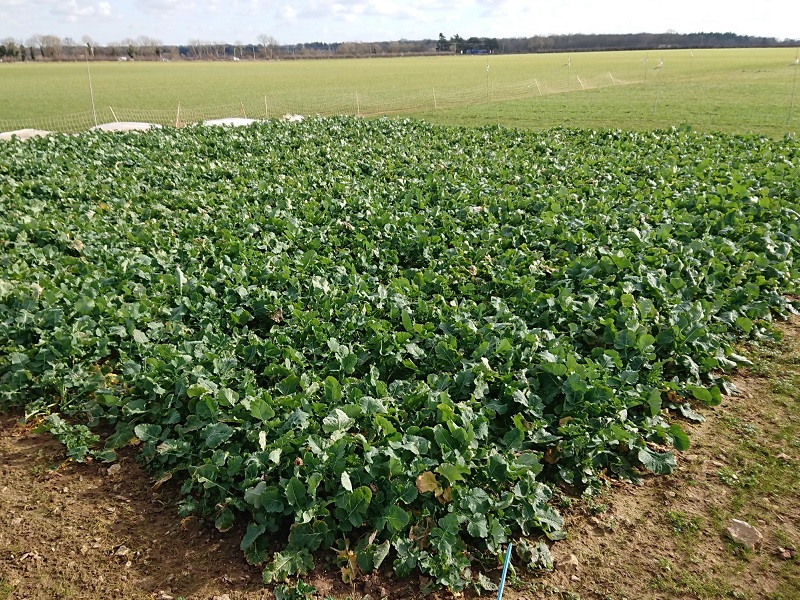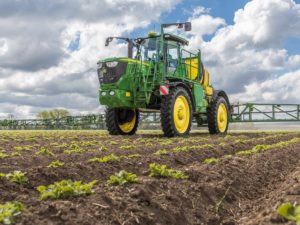The crop plots at the Lincolnshire Cereals Event site have wintered well and are going into spring in strong shape, according to the event agronomist and site manager.
A key feature of Cereals, the crop plots present visitors with a chance to see the latest varieties from a wide range of breeders. As June will mark two years since anyone last had a chance to get this first-hand experience, it’s important to showcase them in the best possible condition – although the British weather can present some challenges, says event organiser, Alli McEntyre. “Our team have put all their efforts into establishing and caring for the crop plots so that visitors can see the latest breeding developments and crop protection methods in person.”
Crops have been through a cold period but all the plots have come through the winter and are looking well, according to Shaun Coleman, centre manager at NIAB, who is managing the site. “They went into winter looking fairly healthy and well established and we had no issues other than a little bit of mouse damage – something we don’t usually see. We also had an issue keeping rooks off in the late autumn-sown crops but that is normal.”
The oilseed rape plots withstood the snow and frost quite well and are still protected by nets for pigeon control, says Peter Brumpton, AICC site agronomist. “We pulled a few plants and did find some cabbage stem flea beetle larvae which was a bit of a concern.” Other farms in the area have also found larvae in their oilseed rape, but at lower levels than seen previously. “The hope is they will stay in the leaf and not go into the stem – we are keeping an eye on it and how it might impact the crop later this year.”
The team will also be keeping an eye on light leaf spot levels in the rapeseed, but the cold snap has helped tone down any yellow rust issues in the winter wheat. “It’s taken the pressure off,” says Mr Brumpton. “There are no great issues with disease in cereals at this stage and we aren’t needing to put any fungicides on.”
Though windy conditions have battered the crops a little, this has helped to dry out soils, meaning Mr Coleman hopes to be able to put on the first fertiliser application in the first week of March. “It should be a standard application across most of the crops, and then we will look to start drilling spring crops in the second week of March,” he explains.
The plan is to drill spring barley, spring wheat, spring oilseed rape, linseed, peas and beans, as well as some other niche crops, says Mr Coleman. “After that we are planning the months ahead in terms of fertiliser and fungicide regimes – there’s a lot still to do before the event.”
The crop plots aren’t just about showcasing varieties from different breeders, they also allow visitors to explore different pest and disease control options, says Ms McEntyre. “There’s no substitute for examining the physical plots and discussing variety choices and management options with the experts. After more than a year of lockdown this is a great chance for farmers to get back out in the Cereals fields.”
- The Cereals Event will be held in Lincolnshire on 9-10 June 2021 and will comply with all required biosecurity measures against Covid-19. For more information or to register for tickets visit cerealsevent.co.uk and use the code ‘FREE1’.




